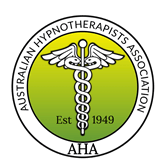How hypnotherapy is helping PTSD patients
According to Health Direct (2022), PTSD affects around 3 million Australians, and Beyond Blue (2022) states that approximately 12 per cent of Australians will experience PTSD in their lifetime.
What is PTSD
The American Psychiatric Association (2020) defines post-traumatic stress disorder (PTSD), also known as shell shock, as a disorder occurring in those who have experienced or witnessed a traumatic event.
Some symptoms of PTSD include:
- re-experiencing the trauma
- flashbacks that disturb everyday life
- nightmares
- memories prompted by smells, sounds, words or other triggers
- avoiding certain places, people or objects
- feeling numb
- feeling a sense of hopelessness about the future
- negative mindset
- intense anger, worry, or guilt
- constant, extreme alertness
- always looking out for signs of danger
- easily startled
- irritable or aggressive behaviour
- insomnia
How does hypnosis help with PTSD?
A 2021 systematic review found several results indicating that mindfulness-related interventions (including hypnosis) facilitate parasympathetic activity, increased vagal tone and PTSD symptom improvements (Poli et al., 2021).
There is also empirical evidence available on the effectiveness of hypnosis for insomnia in people with PTSD due to the ability of the hypnotic state to effect change in the default mode network (DMN) (Szigethy et al., 2018)
More recently, Menon (2021) investigated a study by Lebois et al. (2020), which located a possible brain circuit mechanism underlying individual differences in dissociative symptoms in adults with PTSD and childhood trauma. Menon (2021) discusses how this study is relevant to hypnotherapy and may explain why hypnosis can help patients with PTSD.
In healthy control subjects, hypnosis decreases connectivity between the fronto-parietal network (FPN) and the default mode network (Menon, 2021). The FPN is essential for our ability to coordinate behaviour in a fast, precise, and flexible goal-driven manner and the default mode network is often related to our sense of self (Marek & Dosenbach, 2018)
Hypnosis also increases connectivity between the FPN and salience network (Menon, 2021). The salience network is a collection of brain regions that select which stimuli are most important for our attention and focus (Uddin, 2017). The salience network includes the amygdala, and hyperconnectivity of amygdala circuits is also linked to the dissociation subtype of PTSD (Menon, 2021).
In individuals with high levels of dissociation, including PTSD patients, hyperconnectivity between the DMN and FPN may suggest maladaptive mental processes (Menon, 2021). Therefore, Menon (2021) theorises that hypnosis improves symptoms of trauma-related dissociations by decreasing hyperconnectivity between the FPN and DMN, essentially restoring balance.
Hypnotherapy Vs Medication for PTSD
Study 1
Abramowitz et al. (2008) compared two groups of patients with chronic PTSD and evaluated the benefits of add-on hypnotherapy. One group received Zolpidem 10 mg nightly for 14 nights, and the hypnotherapy group was treated with symptom-oriented hypnotherapy twice a week for two weeks. There was a substantial positive difference in the group that received hypnotherapy which was seen at follow-up one month later, including improved sleep and reductions in intrusion and avoidance reactions (Abramowitz et al., 2008).
Study 2
A single-blind randomised control study found that spiritual hypnosis (a therapy that employs spiritual, psychodynamic, CBT, and humanistic therapeutic features) was significantly better than fluoxetine at lessening PTSD symptoms in adults with childhood trauma and had similar effects as fluoxetine on cortisol levels (Lesmana et al., 2022).
Working with PTSD clients using hypnosis
Hypnotherapy is a flexible treatment that can target various symptoms that PTSD patients deal with and can be successfully integrated with other modalities (Abramowitz & Lichtenberg, 2010). By using the hypnotic state, creative therapists can reframe the usually unsettling state of dissociation in a therapeutic way for PTSD patients (Abramowitz & Lichtenberg, 2010).
Conclusion
There is plenty of research available outlining the benefits of clinical hypnotherapy for PTSD patients. Due to the ability of hypnosis to employ the dissociative state, the generally high hypnotisability of the PTSD cohort (Wieder et al. 2022) and the positive effect on PTSD symptoms, hypnotherapy is a viable complementary treatment option.
Written by
Janine Mcilwain
Clinical Hypnotherapist, EMDR therapist and Meditation teacher
https://mindfulhypnotherapyandwellness.com/



